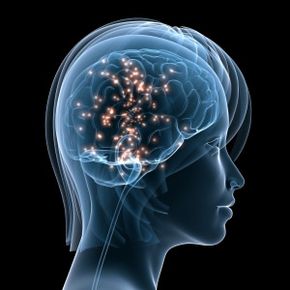Better mental function and weight loss in the same bottle. It's an appealing proposition, and one that the proponents of acetyl-L-carnitine make regularly. Whether these claims hold any water is a murkier issue.
Let's start with what we do know. Acetyl-L-carnitine is one of several forms of carnitine at work in your body. Carnitines carry certain fatty acids to mitochondria to be burned as fuel. They also carry away the waste products of this process. In a healthy body, the kidneys regulate the level of carnitine -- if you have too much, they get rid of what you don't need. If your diet is low in carnitine, the kidneys hang on to what you have [source: NIH].
Advertisement
All carnitines are antioxidants, and because you can manufacture them yourself, they're classed as nonessential nutrients. Certain people do have carnitine deficiencies -- either genetic or induced by medication -- that stem from the inability to process certain dietary nutrients. Supplements can often help these patients. (You'll probably know if you are such a patient -- carnitine deficiency usually accompanies a more severe problem, such as kidney failure or cancer [source: NIH].)
The carnitines work in different but related ways. Some are more closely tied to cardiac health, some to metabolism and some to neurological health. Because some studies implicate mitochondrial decay as a cause of aging, some people speculate that using carnitine to maintain mitochondrial function could stave off symptoms of aging -- in particular, the frightening mental declines that accompany age-related illnesses such as Alzheimer's [source: NIH].
The way acetyl-L-carnitine works with your mitochondria helps your body metabolize fat. That makes it an appealing prospect for weight loss as well as for mental function, since the nervous system relies on certain fats. So far, though, claims about acetyl-L-carnitine and weight loss have had more style than substance.
This article will tell you a bit more about acetyl-L-carnitine including what we know and what we don't know. You'll also find out about the possible benefits and risks of taking it and its role in weight loss and cognitive function.
Advertisement



